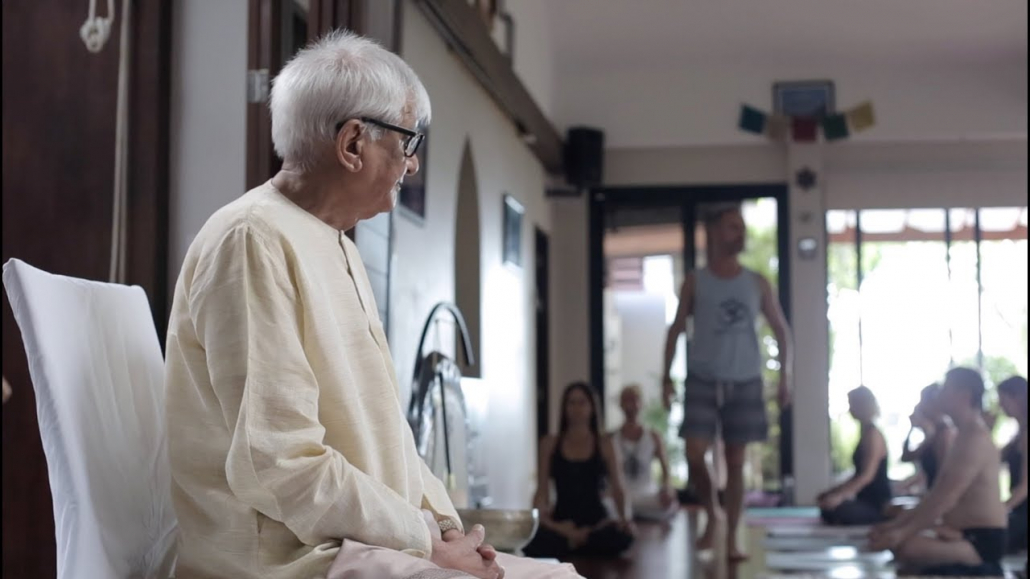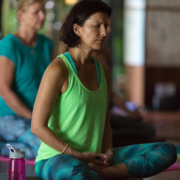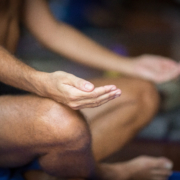 https://samahitaretreat.com/wp-content/uploads/2024/03/DJI_20231220135922_0003_D-scaled.jpg
1920
2560
Kirsten Mia
http://samahitaretreat.com/wp-content/uploads/2024/01/samahita-logo-v2.svg
Kirsten Mia2024-03-20 15:30:592024-03-20 15:30:59Travel, explore, be curious!
https://samahitaretreat.com/wp-content/uploads/2024/03/DJI_20231220135922_0003_D-scaled.jpg
1920
2560
Kirsten Mia
http://samahitaretreat.com/wp-content/uploads/2024/01/samahita-logo-v2.svg
Kirsten Mia2024-03-20 15:30:592024-03-20 15:30:59Travel, explore, be curious!Obstacles and Success in Yoga
 By Anthea Grimason
By Anthea Grimason
“Your practice time should be your practice time, it’s an appointment with you” ~ Tiwariji, July 2018.
During philosophy class this July Tiwariji emphasized the importance of making space each day to practice and talked about how to practice ‘nicely’ according to the yoga texts, specifically the Hatha Pradipika, which in the first chapter delves into 6 obstacles and 6 ways to have success in yoga.
These tips can still apply today for those of us trying to successfully integrate yogic practices into our modern-day lives.
6 Obstacles to Practice:
1. Over-eating
What you eat, when and how much is very important for anyone serious about yoga. Overeating causes the body to become sluggish and the mind dull. In general, a yogi should follow the Ayurvedic principles of enjoying nutritious, tasty, food, with plenty of ghee, eating with a peaceful attitude, and leaving a quarter of the stomach empty to aid digestion. Food should also be sattvic (pure) rather than rajasic (stimulating) or tamasic (heavy) for maximum health and to benefit one’s yoga practice.
2. Over-exertion
Yogis should avoid too much exertion, or overstraining the body. Asana should be practiced slowly, with good concentration, paying attention to what is being done rather than thoughts. In general, we should conserve energy for spiritual purposes and not waste it by overworking. When walking, eating, working, going about daily life, it’s also important to go slowly and pay attention.
3. Talking too much
“Practice more, talk less”, advises Tiwariji.
Too much talking is another waste of vital energy that could be used in more beneficial ways. A yogi should also be mindful of what they talk about, and how they talk. Getting caught up in gossiping, complaining, and talking negatively about people behind their back are all serious drains in energy, and not a very yogic way to be. Talk nicely, talk less.
4. Severe austerities
Insistence on strict rules by a teacher or practitioner inhibits growth and shows close-mindedness. Some rules or guidance can of course be good for practice, especially for beginners who need quite a bit of structure, but as we grow too many rules actually become an obstacle. A yogi should have a free and curious mind and, therefore, should seek a teacher with an open mind.
5. Public contact
It’s important to take time for ourselves. A yogi should try to develop the habit of avoiding all activities which are devoid of purpose, time consuming and energy depleting. Instead it’s best to channel one’s energy and actions into practice and study. This requires having discernment about who we spends our time with and what social situations to attend.
6. Unsteadiness / wavering mind
“Mind should not disturb practice.”
Steadiness in mind and consistency in practice cultivates yoga. Our mental or emotional imbalances can cause our mind to become distracted, unwavering, with loss of willpower and commitment, meaning practice ends up all over the place, on one day, off the next. But if we use our energy properly, and the body is balanced then mental steadiness develops, and the mind doesn’t get in the way of practice.
Tips for Success
1. Enthusiasm
Every yoga practitioner should practice with enthusiasm, whether it’s a sitting practice or a dynamic asana practice. Enthusiasm helps develop consistency. For this one should know why they practice in order to stay inspired. It’s easy to enthusiastic at first but life gets in the way and distracts us, so without enthusiasm it’s difficult to maintain a practice over a long period of time. Furthering studies can also help. The message here is to have passion for what we study and practice.
2. Perseverance
This goes hand-in-hand with enthusiasm. Perseverance is necessary to help cultivate true commitment and to ensure we stay on the yogic path, not getting distracted by other temptations and desires. It’s continued effort over time, not so much to reach a particular goal but to develop that consistent effort that allows us as practitioners to grow and learn in our own time.
3. Proper understanding / discrimination
“Study what you are practicing, don’t practice blindly”
Tiwariji explains that success in yoga will be brought first by understanding why we practice. To know why we practice we must study the texts, practice with a teacher and question our teacher ‘nicely’. Yoga is not something that can just be learned from reading texts, especially pranayama. But with the right guidance and proper practice we can develop trust, discrimination, and in time a clear understanding of why to practice from our own experience.
4. Unshakeable faith
Faith is also required for success in yoga as lack of faith leaves us doubting and never fully committing. This is where correct understanding and a discriminating mind come in, helping develop faith in ourselves, in our practice and in our teachers. Not blind faith, however, which is with no inquiry, or merely following a so-called guru, a dangerous and lazy route to take. The point is to study first, then understand, then experience, which in time helps develop faith.
5. Courage
Both faith and courage help us overcome challenges, in life and in practice, which will inevitably come. We have no way of knowing what lies in store for us, and there are many times if life when we’ll be called upon to be brave. Courage gives us the strength to carry on the path when difficulties arise, it allows us to adapt as needed at different stages of life and gives us an inner strength to be uncomfortable at times, and to allow ourselves to grow.
6. Avoiding excessive contact with people
It’s important to be mindful about the company we keep and how much time other people are taking up our lives. Friends in particular should not be a deterrent from practice, so it’s important to make good choices about the company we keep. In addition, solitude is important for development of inner practices, creating time and space for ourselves every day.
In summary, yoga is never just about what happens on the mat — food, lifestyle and life choices are important for anyone practicing. Understanding the obstacles that might get in the way of that, and making adjustments accordingly using some of these tips, can help us become more balanced and steady on the yogic path.
“Yoga wants to give us a balanced, integrated personality” ~ Tiwariji.
More from the Samahita Blog






